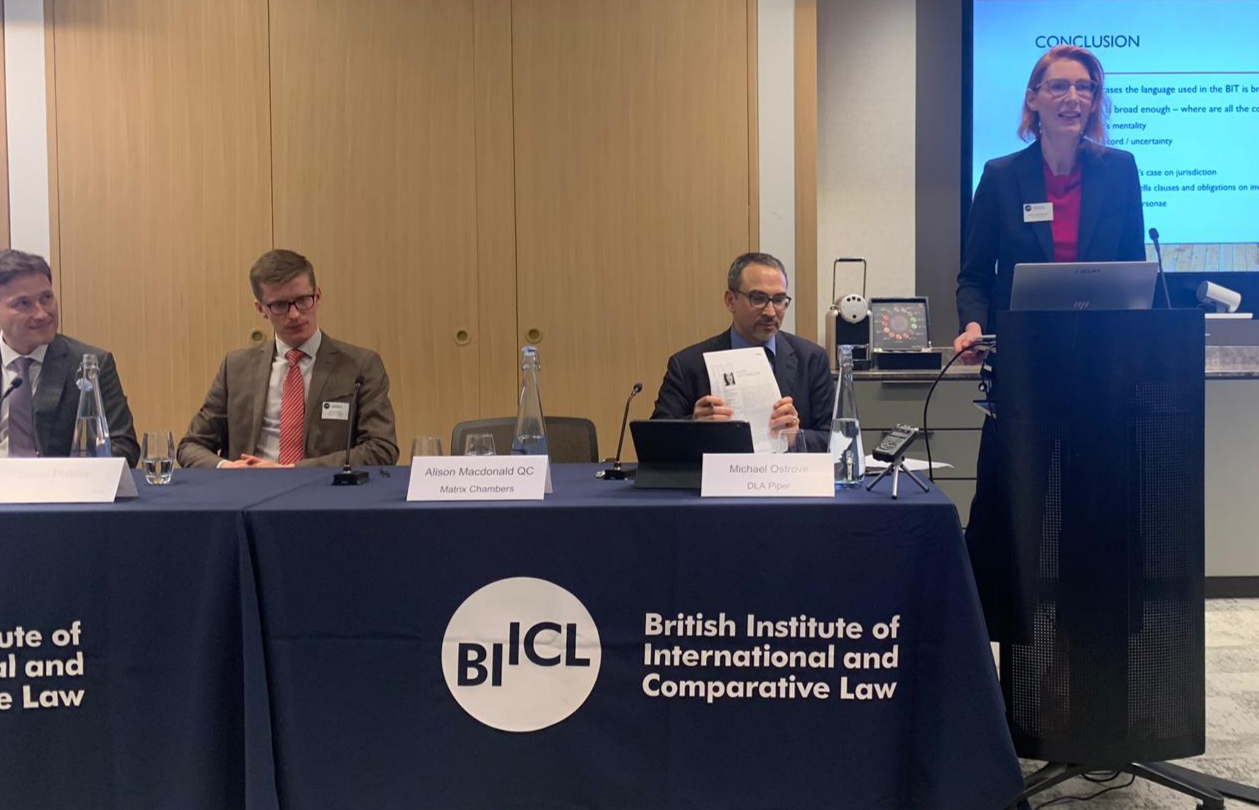At a fully-packed BIICL event on 6 November 2020, we discussed counterclaims in investor-state disputes. DLA Piper and the Investment Treaty Forum brought together an excellent panel to discuss the complexities of asserting counterclaims, including jurisdictional, substantive and enforcement aspects of it: Michael Ostrove, David Herlihy, Alison Macdonald and Dainis Pudelis from the State Chancellery of the Republic of Latvia.
Although I was not one of the event’s main speakers, I have been interested in this topic ever since preparing counterclaims for the Government of Romania in Roussalis v Romania ICSID case back in 2007. They also devoted my first serious article on international investment law in 2012 to counterclaims. (‘Counterclaims in Investor-State Disputes’, Minnesota Journal of International Law (2012), London School of Economics Legal Studies Working Paper No. 8/2011 (2011)).
It was rather striking that most of the issues I raised in my 2012 article have still not been resolved. That includes passing through the jurisdictional gateways of the relevant dispute resolution clauses, interpreting applicable arbitration rules and actually finding the sources of obligations of investors.
According to the panel, there has never yet been any successful counterclaims on the merits in treaty arbitrations. Although asserting jurisdiction over counterclaims in investment disputes is not without precedent (e.g. in Urbaser v Argentina) success on the merits is another story.
It appears, however, that states are warming up to the idea of changing the treaties to make dispute settlement more symmetric with the greater use of counterclaims in case of investor misconduct.
As we see more investment treaties incorporating obligations of investors on human rights, environmental protection, anti-corruption standards, counterclaims may help to facilitate greater procedural equality between states and investors as well as the judicial economy of not having to resolve issues of investor misconduct in multiple fora.
Other notable points discussed during the meeting on counterclaims:
- The ICSID Convention (Art 46) adds three prongs related to counterclaims, which should (1) arise directly out of the subject-matter of the dispute; (2) be within the scope of the consent of the parties and (3) otherwise be within the jurisdiction of the Centre.
- The ICSID Convention requirements are in addition to other requirements because the Convention is not an expression of consent but a dispute resolution vehicle.
- For ad hoc arbitrations, 1976 UNCITRAL Rules (“out of the same contract”) still apply to many investor-state disputes because the relevant treaties were concluded before the 2010 version of the UNCITRAL Rules. That adds another layer of complexity for tribunals deciding on the jurisdiction of counterclaims. The 2010 version talks about counterclaims in broader terms but it is still necessary to show a sufficiently close connection.
- Privity and the relationship between various actors may lead to additional complications (e.g. does the counterclaim actually belong to the citizens of the host state? How to enforce against other parts of the same corporate group of the investor?
- Environmental counterclaim under UNCITRAL Rules in Chevron v Ecuador found that the assertion of counterclaims belong to affected citizens (but there was a subsequent settlement in that case related to this)
- Jurisdiction was asserted over counterclaim in Burlington v Ecuador (over environmental issues) but in this case, both parties consented to counterclaims
- It is important to distinguish between asserting jurisdiction over contractual counterclaims (relatively non-controversial) and treaty counterclaims.
Here is Emily Chalk’s excellent Twitter report from the event:
I’m at another British Institute for International and Comparative Law (@BIICL) / Investment Treaty Forum event tonight. As usual, I’ll be live tweeting it 🤓 #law #disputes #litigation #arbitration #isds #itflaw pic.twitter.com/4fHj8PAAUm
— Emily Chalk (@emilychalk) November 6, 2019
And here is a podcast of all presentations:
Prof Yarik Kryvoi
British Institute of International and Comparative Law

Comments are closed.